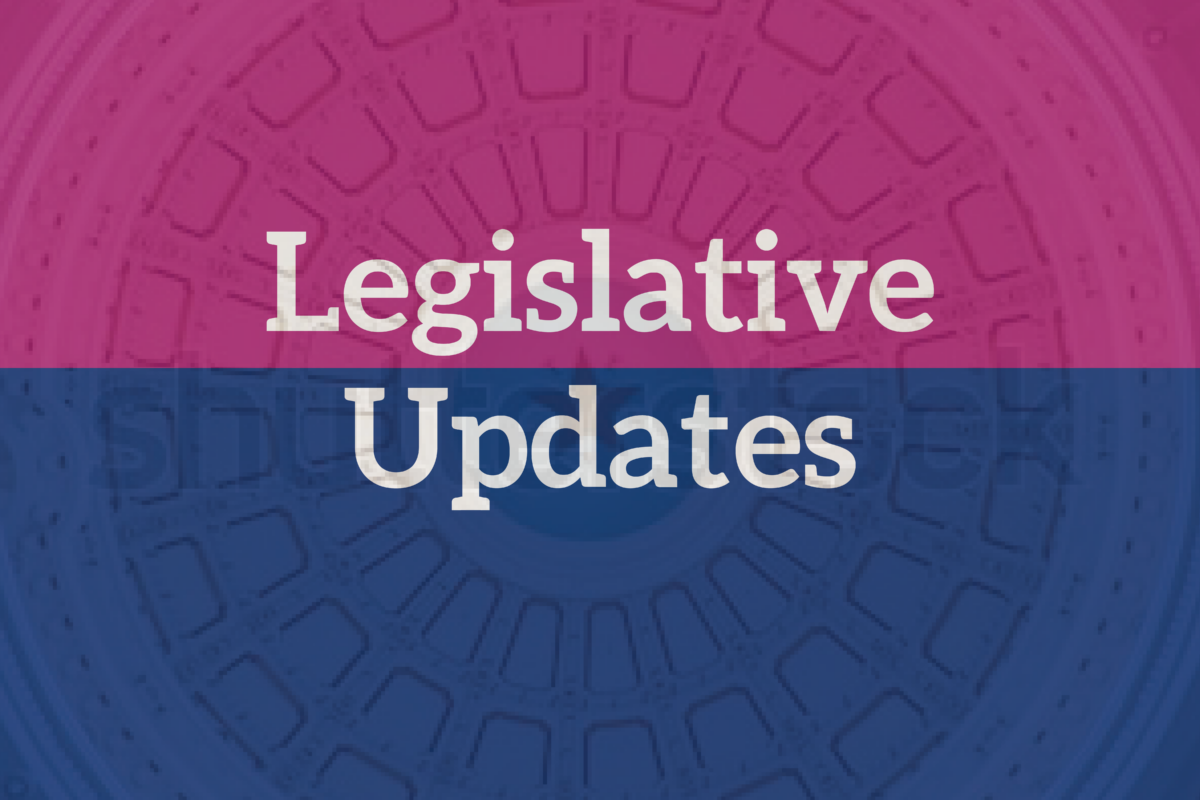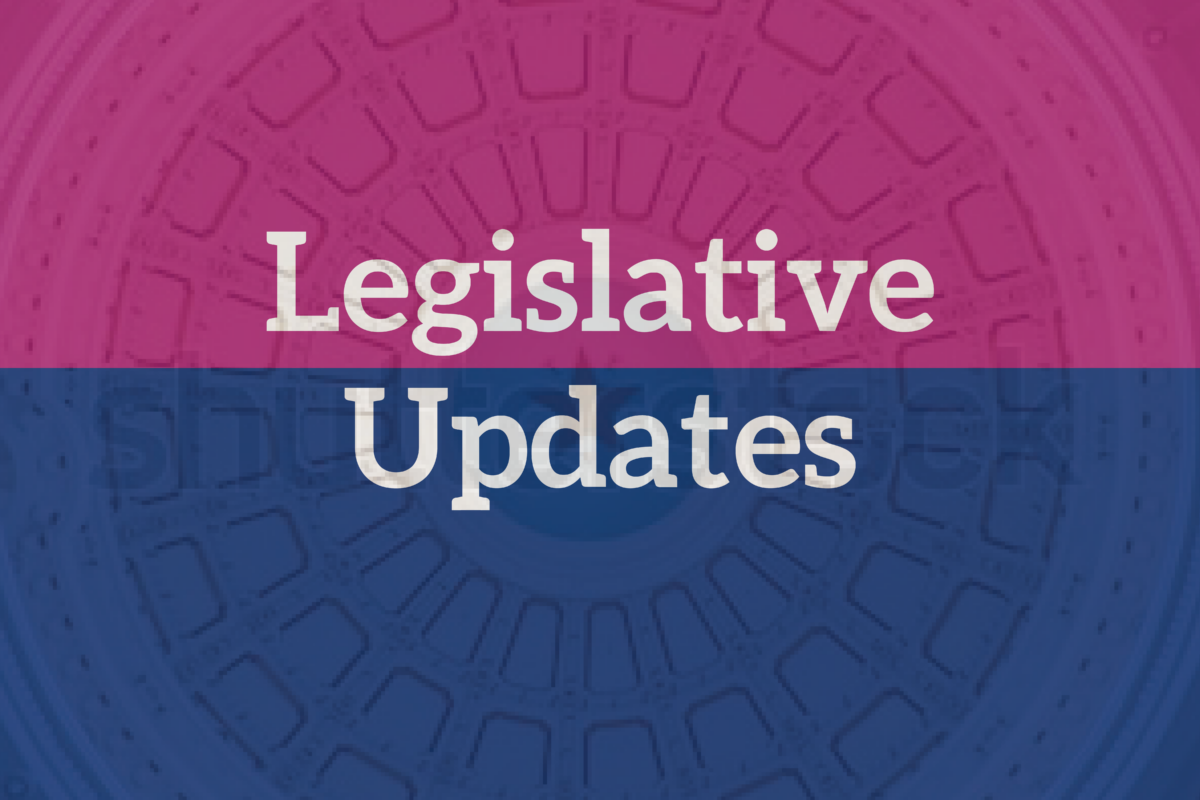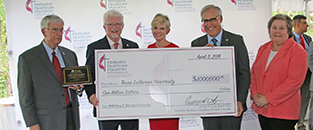
During the 85th legislative session, Methodist Healthcare Ministries tracked roughly 1,400 bills, supported over 500 bills, and worked to assist the passage of 224 laws that affect access to health care for Texas families. Keep up to date on how those laws are being effectively implemented and funded as intended through our legislative updates.
Interim Updates
Upcoming Meetings & Events
Health Care Policy News
___________________________________________________________________________________________
More women being served in Texas women’s health programs
The Texas Health and Human Services Commission (HHSC) released a report highlighting the increasing number of women enrolled in Texas Health Programs, including the Healthy Texas Women program and the Family Planning Program. These programs provide a wide range of services to eligible individuals such as STD screening, mammograms, contraception coverage and much more. HHSC reports 122,406 clients were served in Healthy Texas Women in 2017, an increase from 70,366 clients in 2016. The Family Planning Program also saw an increase of 58,586 clients from 2016 to 2017. However, HHSC states that these enrollment numbers cannot be compared to the number of women accessing services prior to the massive budget cuts in 2011, due to changes in program eligibility and benefits.
HHSC notes that the Family Planning Program and the Healthy Texas Women program are projected to save millions of dollars on Medicaid and the Children’s Health Insurance Program. The report comes at a time when Texas is waiting to receive more than $400 million in federal funding over five years to fund the Healthy Texas Women program, which would further improve health outcomes. These programs play a critical role in increasing access to women’s health services, which is a legislative priority for Methodist Healthcare Ministries.
Members appointed to Judicial Commission on Mental Health
Thirty-one newly appointed members of the Judicial Commission on Mental Health convened their first meeting earlier this month at the Texas Law Center in Austin. Created under the direction of the Texas Supreme Court and the Texas Court of Criminal Appeals, the statewide Commission is charged with developing a plan that recommends best practices in the administration of civil and criminal justice for individuals with mental illness. The Commission will also develop an outreach campaign to create awareness of its mission and organize a Judicial Summit on Mental Health in the fall of 2018.
Recognizing the importance of input from a broad spectrum of individuals involved in mental health, the Courts also called for the creation of a Collaborative Council, to provide the Commission with additional expertise and guidance. Methodist Healthcare Ministries’ Director of Governmental Affairs, Chris Yanas, was chosen as a member of the Collaborative Council and will take part in scheduled meetings throughout the remainder of 2018. The Commission will wrap up its work with a report of recommendations to members of the 86th Legislature.
Task Force of Border Health Officials identifies health issues
The Task Force of Border Health Officials, formed by the passage of SB 1680 by Senator Eddie Lucio, brings focus and attention to the challenges and hardships that the entire border region faces every day. The task force will make recommendations to the Department of State Health Services (DSHS) commissioner for short-term and long-term border health improvement plans to enhance public health and create a healthy binational community. Since its inception in December, the task force has identified five key health issues: Border Public Health Infrastructure, Communicable Diseases, Arbovirus, Chronic Diseases, and Maternal and Child Health. Currently, the task force is working on creating issue statements and recommendations, which are due to DSHS by Nov. 1. Members include local health officials from Cameron County, Brownsville, Harlingen, McAllen, Hidalgo County and Laredo. Methodist Healthcare Ministries will continue to monitor task force meetings and look to develop legislative initiatives based on Task Force recommendations.
Federal administration proposes $7B reduction in CHIP
The federal administration has advanced proposals that look to rescind nearly $7 billion from the Children’s Health Insurance Program (CHIP). These changes have been proposed despite a bipartisan agreement earlier this year to extend CHIP funding for 10 years. Another $2 billion of the proposed cuts targets the Child Enrollment Contingency Fund, which is available to states that experience an unexpected surge in enrollment, such as natural disasters or economic downturn. Child advocates argue that these cuts would undermine historically bipartisan agreements designed to use these funds for future investment needs in other programs serving children and vulnerable families. Today, more than 400,000 low-income children in Texas get health insurance through CHIP, which provides for wellness check-ups, screenings and access to a provider for more serious illnesses. Methodist Healthcare Ministries has signed on to a national letter with the American Academy of Pediatrics in opposition to the White House’s proposal, urging members to protect the wellness of children and families.
Laredo health care community collaborates on immunization policies
Methodist Healthcare Ministries’ advocacy partner, The Immunization Partnership, held a stakeholder meeting in Laredo to discuss immunization policies and collaborate on efforts to increase access to vaccinations for Webb County residents. The data noted that Texas is doing better than the national average on most vaccinations, but numbers have exponentially declined within the last several years. There were approximately 50,000 conscientious objections to required vaccines last year, an increase from 2016.
Providers and community leaders addressed the need for collaboration and communication about vaccinations in Laredo and surrounding areas. Clinic providers stated that they are unsure if students are getting vaccinated at school clinics because it is not recorded in an electronic database system and parents do not have proof. School officials and clinical staff stressed the need to input vaccination data on a timely basis. The Laredo community discussed several strategies to educate parents about vaccinations, such as providing training to providers on how to recommend vaccinations. The Immunization Partnership will be hosting a stakeholder meeting in Corpus Christi on May 30. You can register and obtain more information here. Methodist Healthcare Ministries will continue to work with partners to increase access to vaccinations and improve data collection processes at both the state and local level.
CMS releases new report on Marketplace enrollments
In April, the Centers for Medicare and Medicaid Services (CMS) released their annual report on the Affordable Care Act (ACA) Marketplace enrollment period for 2018, highlighting the number of families and individuals who signed up for health insurance through the federal marketplace. The data shows that 1.1 million Texans selected a 2018 Marketplace plan, a decrease of 8 percent from 2017. The lower participation number is largely attributed to a cut in enrollment time and reduced funding for outreach and enrollment efforts. Given these obstacles, 8 percent is deemed a modest decrease due to the tireless efforts of in-person assisters, community groups and foundations.
The report also provides county-level enrollment numbers of the 10 most populous counties in Texas. Reductions found in the marketplace varied among Texas counties. Fort Bend and Bexar County saw a 2 percent and 9 percent decrease, respectively, whereas Denton County saw a 17 percent decrease. Supporting access to care through affordable health care coverage is a legislative priority for Methodist Healthcare Ministries.
May 24: House Appropriations Committee Hearing (Austin)
May 30: The Immunization Partnership Stakeholder Meeting (Corpus Christi)
May 30-31: Telehealth at the Crossroads Conference (San Antonio)
May 31: HHSC Executive Council Meeting (Austin)
June 1: Texas Tribune: Austin & the Legislature (Austin)
June 12: Bexar County Opioid Task Force (San Antonio)
June 12: Texas Tribune: A Conversation with Sen. Menendez and Reps. Gutierrez & Minjarez (San Antonio)
Sept 27-29: The Texas Tribune Festival (Austin)
Telemedicine
Kaiser Health News: Telemedicine opening doors to specialty care for inmates
Health Care Systems
The Commonwealth Fund: 2018 Scorecard on state health system performance
Health Care Workforce
CBS DFW: Texas mental health counselors waiting months to be licensed
Child and Maternal Health
Texas Tribune: Panelists say more funding, education and access to care are needed to reduce Texas’ maternal mortality rate
Back to Top




















